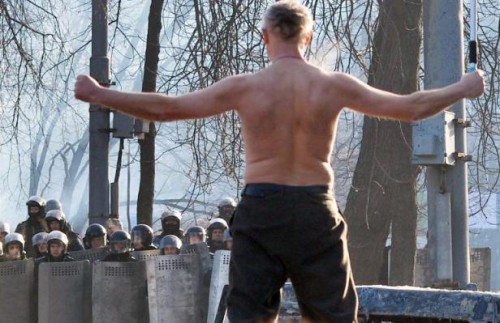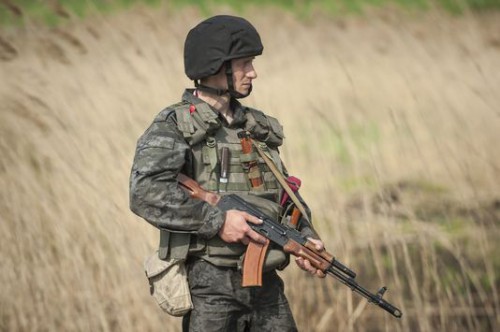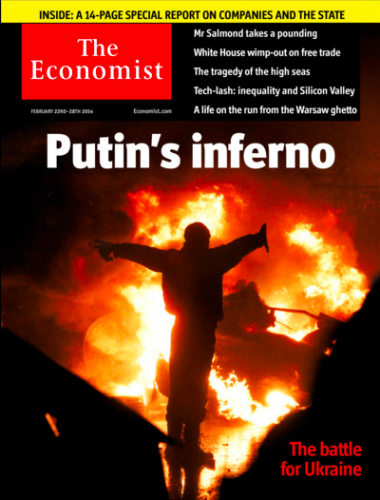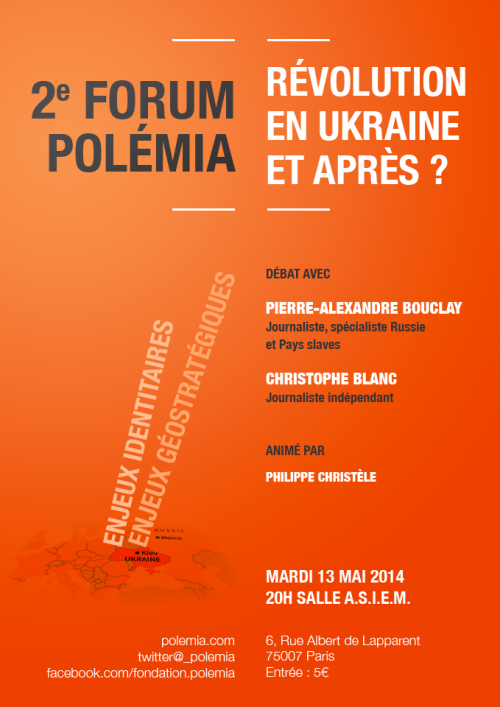Les bas-reliefs érotiques des temples hindous, avec leurs positions qui défient la gravité et les lois de l'anatomie ont désormais de la concurrence, avec la crise ukrainienne. Chaque partie veut avoir les juifs de son côté, tout en prétendant que l'autre bord est anti-juif et néanmoins téléguidé par les juifs tout à la fois. Cette position intenable et kamasoutresque est le résultat d'une série d'alliances extrêmement confondantes. Le régime actuel de Kiev comporte des juifs tout dévoués et des antisémites sauvages aux places capitales. Les figures de proue du régime (y compris le président élu) sont d'origine juive; l'homme fort et le financier en chef Igor Kolomoysky est une éminence publique parmi les juifs, édificateur de nombreuses synagogues et fervent d'Israël. Mais la force la plus décidée et agissante du régime, les ultra-nationalistes du parti Svoboda et le Secteur Droit, admirent Hitler et son quisling ukrainien, Stepan Bandera, ces "libérateurs de l'Ukraine qui ont su rejeter le joug judéo-moscovite", comme ils disent. Les juifs sont ambivalents, et les deux bords aussi sont ambivalents chez eux, si bien qu'on est au cœur d'une intrigue très divertissante.Les Russes ont essayé d'attirer Israël et les juifs américains dans leur camp, mais n'ont pas eu beaucoup de succès. Le président Poutine a condamné l'antisémitisme du parti Svoboda; il a mentionné la profanation du cimetière d'Odessa dans son discours décisif. Les Russes ont revitalisé le récit de la Deuxième Guerre Mondiale, en identifiant pleinement le régime de Kiev avec les gangs de Bandera et l'ennemi nazi. Et pourtant, cette rhétorique n'est pas prise au sérieux par les juifs, qui refusent de se sentir menacés par le féroce Kolomoyski. "Ces nazis-là ne sont pas contre les juifs, ils sont contre les Russes, donc ce n'est pas un problème juif", disent-ils.Le régime de Kiev a repris en miroir l'attitude russe, et même la tactique russe. N'ayant guère de faits à brandir, ils ont fabriqué un faux tract attribué aux rebelles de Donetsk, s'adressant aux juifs locaux pour qu'ils aillent s'enregistrer et payer une taxe spéciale pour les élections, "parce que les juifs soutiennent le régime de Kiev". Cette imposture grossière et improbable a été immédiatement désavouée, de façon convaincante, mais Barak Obama a quand même eu le temps den tirer profit, ainsi que John Kerry. Le quotidien américano-juif Forward a embrouillé tout cela en disant que Russes comme Ukrainiens sont antisémites de naissance, et que leurs dénégations sont à prendre avec des pincettes. Mais le torrent de boue a fait son effet, l'imposture avait fait les unes nécessaires, et le démenti n'a figuré qu'en dernière page des journaux.Les Russes avaient les faits pour eux, et l'Occident le savait: les US ont refusé un visa à Oleg Tyagnibok et à d'autres dirigeants de Svoboda (qui sont maintenant membres du gouvernement de Kiev) pour cause d'antisémitisme jusqu'en 2013. Mais les appels russes à la sensibilité juive et américaine n'ont pas réussi à avoir le moindre impact. Ils savent quand il faut feindre l'indignation et quand il convient de se taire. Les commémorations pro-hitlériennes sont fréquentes en Estonie, en Lettonie, en Croatie, et ne provoquent pas un froncement de sourcil, parce que ces contrées sont solidement anti-russes. En mars de cette année, l'envoyée spéciale de l'administration Obama pour se pencher sur l'antisémitisme, Ira Forman, a tout nié platement, et a dit à Forward que les assertions de Poutine au sujet de l'antisémitisme de Svoboda "n'étaient pas crédibles." Les US veulent décider seuls qui est antisémite et qui ne l'est pas, comme Hermann Goering voulait décider qui était juif et qui ne l'était pas, dans la Luftwaffe. Dans la crise ukrainienne, les juifs restent divisés, et suivent les préférences de leurs pays respectifs.Israël est neutreRécemment, le premier ministre Netanyahu a téléphoné au président Poutine. Poutine est toujours joignable et toujours courtois, pour Netanyahu, à l'opposé du président Obama, qui montre des signes d'irritation (il faut bien reconnaître qu'Obama est obligé d'écouter Netanyahu nettement plus souvent, et ce, pendant des heures). Netanyahu s'est excusé de ne pas pouvoir venir à Saint-Pétersbourg pour la semaine de la culture israélienne; Shimon Peres, expérimenté et de toute confiance, le remplacerait, en tant que président israélien. Il s'est confondu en excuses pour avoir laissé fuiter l'annulation de sa visite dans les médias, en plus.C'est typique, chez le premier ministre israélien: d'abord, il demande à être invité, après quoi la Russie lui envoie son invitation, puis il annule et le fait savoir à la presse, ce qui lui permet de gagner des points côté américain. Il l'avait fait pour les JO de Sotchi, il remet ça à Saint-Pétersbourg. C'est comme ça que s'exprime la neutralité israélienne.Israël est explicitement neutre dans la crise ukrainienne. Les Israéliens sont sortis et n'ont pas voté lors de l'Assemblée générale de l'Onu, ce qui a consterné leurs sponsors américains. Ils avaient une excuse fumeuse: le Foreign Office était en grève. Les Américains n'ont pas apprécié cette explication. Grève ou pas grève, on vote!Nous avons appris de nos collègues israéliens les détails de l'échange téléphonique entre Poutine et Netanyahu, sur lequel s'est élaborée la neutralité israélienne. Israël est fort ennuyé du fait qu'en réponse asymétrique aux sanctions US, la Russie puisse livrer ses système de défens aérienne puissants à l'Iran et à la Syrie. L'Iran et la Syrie avaient signé un contrat de fourniture d'armes il y a quelques années, l'Iran avait payé son dû, puis la livraison a été suspendue. L'Iran a fait appel aux tribunaux pour réclamer un dédommagement massif pour rupture de contrat. De même, les Syriens devaient avoir accès au système de missiles sol-air S-300, qui leur permettrait de protéger leur espace aérien des raids israéliens. Les livraisons avaient commencé. Netanyahu a supplié Poutine d'y mettre le hola. Poutine a tout d'abord objecté, en soulignant la nature défensive du système. Alors Netanyahu a expliqué au président russe que le S-300 permettrait aux Syriens de couvrir tout le nord d'Israël, ou du moins la route vers Haïfa, ce qui rendrait inutilisables d'importants terrains d'aviation, et mettrait également l'aviation civile en péril. Poutine a accepté d'arrêter les livraisons.Vladimir Poutine est amical avec Israël. Il a promis qu'il ne permettrait pas la destruction d'Israël; il a promis de sauver sa population si la situation devenait vraiment dangereuse. Au cours de la récente visite de Netanyahu à Moscou, Poutine ne s'est pas laissé entraîner par les projets que Lieberman et Netanyahu lui faisaient miroiter d'une ré-alliance avec Moscou plutôt qu'avec Washington. Il a dit aux Israéliens que leurs liens avec les US étaient trop solides pour qu'un tel renversement d'alliance soit concevable. Poutine a dit que la Russie était satisfaite du niveau actuel de leur amitié, et qu'il ne demandait nullement à Tel Aviv de relâcher ses liens avec Washington. Poutine a visité Israël à quelques reprises, et il a reçu le premier ministre israélien au Kremlin. L'ambassadrice israélienne, Mme Golender, rencontre plus souvent Poutine que ses homologues américain ou français.Cette attitude amicale repose sur une raison terre-à-terre: c'est que Poutine se débrouille mal en anglais ou en français, alors que l'ambassadrice lui parle en russe, ce qui permet de se passer d'ennuyeux interprètes. Plus profondément, il y a le passé de Poutine: c'est un surgeon des élites libérales, il a été élevé à Saint-Pétersbourg, a été formé par l'ultra-libéral maire Sobchack, puis a reçu l'onction de Boris Eltsine. Tout cela fait de lui un sympathisant naturel des juifs et d'Israël. Cette attitude chagrine certains Russes ultra-patriotes, qui ont fait circuler avec empressement sa photo, avec kippa de rigueur, près du Mur des Lamentations. Ils ont aussi compté et recompté les oligarques juifs de Moscou.Certes, certains d'entre eux –les Berezovsky, Gusinsky, Hodorkovsky – ont dû décamper de leur base russe, mais le président russe n'est certainement pas un châtiment pour les grands pontes juifs, ni le nouvel Hitler que l'on prétend parfois. Abramovitch et Friedman, pour n'en mentionner que deux, gardent sa confiance et sa porte leur est toujours ouverte. Tant qu'ils ne se mêlent pas de politique, aucun oligarque, juif ou gentil, ne dérange Poutine.Il est également très amical avec les intellectuels juifs et ces messieurs des médias, même lorsqu'ils lui sont outrageusement hostiles. Ainsi en va-t-il de Masha Gessen, éditorialiste, juive, lesbienne et vilipendant Poutine à tout bout de champ; Alexei Venediktov, rédacteur en chef juif de l'Echo Mosky, un journal libéral et populaire qui attaque Poutine tous les jours, et bien d'autres, jouissent d'un accès privilégié à Poutine en personne, alors que pas un nationaliste russe, Alexander Dougine au premier chef, ne peut se vanter de l'avoir jamais rencontré en privé.L'affabilité de Poutine ne fait pas de lui une source jauillissante de bienfaits en réponse à chaque initiative juive. Il a suspendu la livraison des S-300 à l'Iran, mais a rejeté toutes les ouvertures israéliennes pour couler l'lran,la Sy rie ou le Hamas. Au cours de leur dernière conversation au téléphone, Netanyahu a glapi que les Israéliens avaient découvert des preuves de frappes nucléaires iraniennes. Poutine a exprimé poliment ses doutes, et lui a dit de s'adresser à l'AIEA. Il a accepté de recevoir les soi-disant experts israéliens avec leurs preuves à Moscou, mais il n'en est rien ressorti. Le soutien de la Russie à la Palestine est immuable, et il y a aussi une ambassade palestinienne à Moscou.Poutine a apporté son soutien à la construction d'un musée juif spacieux à Moscou, et il a personnellement contribué à le financer, mais les panneaux publicitaires proclament dans les rues de la Russie la Résurrection du Christ, la Pâque chrétienne et la Nativité à Noël. Pas de vœux saisonniers, mais l'affirmation, ouvertement, de la chrétienté. La Russie n'est pas comme les US ou l'UE, d'où les signes extérieurs de la foi chrétienne sont bannis, et jusqu'à la mention de Pâques ou de Noël, tandis que toute requête provenant des juifs doit être immédiatement satisfaite. Les juifs occidentaux s'offusquent (du moins c'est ce que prétendent leurs organisations) à chaque déploiement public de foi chrétienne, mais les juifs russes s'en fichent; d'ailleurs, ils se marient avec des chrétiens, ils se convertissent en rejoignent l'Église en nombre jamais atteint auparavant. Et ils ne sont pas solidement pro-israéliens, ceux qui avaient été cédés à Israël.De sorte que les juifs de Russie ne sont pas un facteur d'influence pour le président russe. Poutine fera ce qui est juste selon la foi chrétienne, et ce qui est bon pour la Russie, tel qu'il l'entend, et nul ne saurait le convaincre de capituler sur les points réellement importants. D'autres considérations, comme par exemple l'amitié avec Israël, n'auraient qu'un rang tout à fait mineur parmi ses priorités. Cependant, pris dans la crise ukrainienne, comme les Russes sont bien ennuyés par les sanctions et les menaces d'isolement, ils essaient d'attirer les juifs de leur côté. Ceci les rend de plus en plus accessibles à la manipulation israélienne, qu'il s'agisse de manœuvres décidées en haut lieu ou d'initiatives privées.La semaine dernière, l'historien militaire israélien Martin van Creveld est passé par Moscou. En 2003, il s'était rendu célèbre en menaçant l'Europe d'anéantissement nucléaire (l'option "Sanson") en disant: "Israël a la capacité de couler le monde entier avec nous, et c'est ce qui va se passer, avant qu'Israël se soumette à d'autres". Cette fois-ci il a expliqué aux Russes la nouvelle politique israélienne: tandis que les US entrent dans leur déclin, Israël doit diversifier et consolider ses projets en se rapprochant de Moscou, de Pékin et de Delhi, a-t-il écrit dans le quotidien Izvestia. Peut-être, mais sans aller trop loin. Un flirt, certes, mais pas une galipette, pas pour le moment.Israël préfère s'en tenir à sa neutralité. C'est facile, parce que e commun du peuple (à l'exception des Russes) ne s'intéresse pas aux affaires russo-ukrainiennes, ignore la différence entre Ukraine et Russie, et est plutôt hostile aux uns comme aux autres. Ceci est valable pour la gauche et pour la droite; la gauche israélienne est encore plus pro-américaine que la droite israélienne. Et pour les Israéliens d'origine russe, ils sont divisés à égalité entre partisans de la Russie et partisans du régime de Kiev. Tout en gardant la politesse avec la Russie, Israël ne cherche pas à se ranger aux côtés de Moscou. Les oligarques juifs d'Ukraine, les Kolomoysky, Pinchuk, Rabinovitch, sont intégrés au régime de Kiev, et ils soutiennent l'extrême-droite israélienne à grande échelle. Les hommes d'affaire israéliens ont des investissements en Ukraine, et les oligarques en ont en Israël. Kolomoysky contôle YushMash, le prestigieux complexe de construction de missiles à Dniepropetrovsk, et il détient les secrets du missile balistique Satan, l'arme stratégique russe la plus puissante. On prétend qu'il tente de partager ces secrets avec les Israéliens. Si Israël voulait se placer aux côtés de Moscou en ce qui concerne l'Ukraine, la rupture avec Washington serait inévitable, et Israël ne cherche pas à la provoquer.Quelques Israéliens de droite, marginaux, soutiennent la Russie; ils prétendent représenter l'opinion publique israélienne et le gouvernement. Ils s'efforcent de faire des collectes dans le cadre de leurs promesses, avant de fournir quoique ce soit. Mais ce n'est pas là une entourloupe ordinaire; ils essaient en fait d'obliger la Russie à soutenir l'extrême droite sioniste.Prenons le cas de l'activiste russo-israélien d'extrême droite Avigdor Eskin. Il clame que le gouvernement israélien a d'ores et déjà décidé de sauter du train US pour monter dans les wagons russes, que des commandos israéliens sont en route pour aller se battre pour les Russes à Donetsk, et que les autorités israéliennes vont retirer sa nationalité israélienne à Kolomoysky. Naturellement, c'est un tombereau d'insanités, mais les Russes mordent à l'hameçon avec appétit.Avigdor Eskin est une personnalité haute en couleurs, un converti à la foi juive (dans la mesure où sa mère n'est pas juive), un juif pratiquant, un ex-kahaniste qui a été arrêté en Israël pour une tentative de profanation de la mosquée Al-Aqsa et d'un cimetière musulman, et qui a passé deux ou trois ans dans une geôle israélienne; il se donne du "Rabbi" lui-même, et porte la barbe longue. Après son stage en prison, il a déménagé en Russie et a bâti un réseau de soutien à Israël parmi les Russes d'extrême-droite. Son message, c'est: "Israël est un ami véritable de la Russie, tandis que les musulmans sont les ennemis de la Russie." Il ajoute en outre que les colons israéliens sont anti-américains et pro-russes. Si vous y croyez, vous allez bientôt croire aux contes de fée.Il a récemment prétendu que le Bataillon Aliya, composé "de commandos israéliens expérimentés et de tireurs d'élite" était arrivé au Donbass en guerre pour se battre avec les Russes, contre les troupes du régime de Kiev. En fait il s'agit d'un bataillon au sens où l'Armée du salut est une armée. Pendant un court moment, l'ONG a fourni des gardes pour les colonies juives à Gaza et en Transjordanie, mais les colons ont cessé de faire appel à eux parce qu'ils n'étaient pas fiables du tout. Ils se sont vantés du meurtre de civils palestiniens, de torturer et de flinguer les enfants palestiniens, mais c'était juste un fantasme sadique, maladif et raciste, disent les gens. Après quoi, les chefs du dit Bataillon ont fait de leur nom un slogan rentable, saignant les communautés judéo-américaines et collectant des dons pour leurs activités secrètes supposées. Une fois que cette arnaque a été exposée sur une TV israélienne (RTVI network, en ligne sur youtube), ils ont disparu du champ de vision, jusqu'à ce qu'Avigdor Eskin réactive la vielle entourloupe, et fasse de gros titres dans les médias russes avec ça.Eskine a trouvé un frère spirituel en Vladimir Solovyev, éminence des médias russes. Il s'agit d'un partiellement juif, qui vivait à l'étranger, puis est rentré en Russie; il dirige le programme politique important Sunday Evening à la télé russe. Le Saker (blogueur désormais bien connu) l'a décrit comme suit: "Ce show se fait dans l'espace d'une personnalité célèbre, Vladimir Solovyev, un garçon très intéressant. C'est un juif, et il n'a pas peur de le rappeler à son public, et il a même été élu membre du Congrès juif de Russie. C'est aussi un patriote russe, et un défenseur, ouvertement, de Poutine et de sa politique. Sa position sur l'Ukraine est simple; en tant que juif et en tant que russe, il ne tolère pas le nationalisme ukrainien, le néo-nazisme ou le bandérisme. C'est un ennemi déterminé et sans concession du nouveau régime de Kiev."Il se pourrait que Soloviev soit en train de traverser une crise d'identité personnelle: à partir de la célébration de ses racines russes, il est passé à la proclamation de son origine juive. Alternativement, il se peut (et c'est même bien probable) que les décideurs russes veuillent attirer les juifs de leur côté, et Soloviev agit en ayant à l'esprit les juifs américains. C'est ce que faisait Staline, et Poutine pourrait bien tenter le même coup. En 1942, alors que le carnage nazi menaçait la Russie, Staline avait envoyé certains juifs russes aux US pour parler yiddish aux communautés juives et pour faire du lobbying en faveur de l'URSS. La communauté juive américaine pèse sûrement quelque part. En ce moment Soloviev et d'autres essayent de faire pression sur les juifs de l'étranger, ou du moins de montrer à leurs supérieurs qu'ils sont en train de le faire.Le rendement que tire Eskin de ses histoires fantastiques est élevé. Dans l'émission prime time de Soloviev, il a appelé à la destruction de la mosquée Al Aqsa et à l'édification du temple juif à la place. Il a appelé les Palestiniens "le peuple de l'Antéchrist". Même en Israël, des assertions de ce genre ne peuvent pas se faire sur une chaîne publique. A Moscou ébahie, Eskin a été propulsé dans un autre programme politique important, celui de Arcadi Mamontov. Lequel fait le jeu de l'autre? Eskin roule-t-il ses hôtes russes, ou les médias qui l'hébergent sont ils en train de l'utiliser pour berner leurs supérieurs, ou encore sont-ce les dits supérieurs qui essaient d'enfariner le peuple russe? A moins qu'Israël soit derrière? Qui sait?.Les juifs ukrainiens tiennent à divergerLes juifs sont arrivés en Ukraine il y a mille ans, peut-être du pays khazar. Ce n'est pas une communauté homogène, ils représentent plutôt des communautés diverses. Beaucoup ont émigré en Israël, d'autres, encore plus nombreux, se sont établis en Russie. Ils parlent russe et habituellement ne parlent pas ukrainien, quoiqu'ils en soient familiers depuis vingt ans. Normalement, ils n'auraient cure de l'indépendance de l'Ukraine, parce que les juifs sont traditionnellement du côté des plus forts, que ce soit les Polonais à l'époque de la domination polonaise, ou les Russes au temps de Moscou, ou les Allemands dans l'orbite de Vienne ou de Berlin. Maintenant, beaucoup ont décidé de se ranger au côté des US ou de l'UE. L'une des raisons pour lesquelles tant de gens d'origine juive s'en sortent bien est que le groupe ethnique dominant fait confiance aux juifs et à leur loyauté envers les puissants, ainsi qu'à leur absence de compassion pour leurs voisins non juifs.Autre raison, le flou des définitions. Pendant les trois ou quatre dernières générations, les juifs ont fait librement des mariages mixtes; les enfants de ces unions sont souvent considérés comme juifs. Voilà ce que sont "les juifs" sous le régime actuel: en fait ils n'ont bien souvent qu'un seul grand parent juif.L'Ukraine, après son indépendance en 1991, s'est tournée vers la sphère d'influence occidentale, mais l'Ukraine orientale (la Novorussie) a gardé son caractère et ses attaches russes. Les juifs s'en sortent bien des deux côtés. Kolomoysky est un membre éminent de la communauté juive, et un pilier du régime de Kiev. C'est un homme d'affaire rustique, célèbre pour ses rapines sur les propriétés d'autrui, et pour ses liens avec la Maffia. Des rumeurs circulent, qui le mentionnent autour de nombreux assassinats d'adversaires dans le business.De l'autre côté, à Kharkov, le maire et le gouverneur du district, surnommés Doph et Gepah, sont juifs, et peuvent être considérés pro-russes. On pensait que Kharkov deviendrait le centre de la Novorussie émergente, le président Yanoukovitch s'est enfui à Kharkov en pensant y trouver des alliés et des soutiens. Mais Dopa et Gepa l'ont désabusé, si bien qu'il a repris son envol pour la ville russe de Rostov. Leur décision de rester loyaux à Kiev ne leur a pas réussi; l'un a été abattu, l'autre a été embastillé et sa tentative de se porter candidat à la présidentielle remballée.Kharkov est aussi proche de Hodos, un juif riche et éminent qui a combattu vaillamment contre Habad, le mouvent spirituel juif dont M. Kolomoysky est membre influent. Les juifs de Novorussie soutiennent apparemment la tendance générale pro-russe, mais il y a des exceptions. Pratiquement tous les juifs ukrainiens ont de la famille en Russie, et ont reçu une éducation russe.Israël a un solide réseau d'agents en Ukraine. Ils ont capturé un ingénieur palestinien et l'ont envoyé dans un cachot israélien, ce qui n'aurait pas pu se faire sans la collaboration des services de sécurité ukrainiens. Cependant, les histoires de soldats israéliens combattant en Ukraine sont quelque peu exagérées: ce sont des individus qui ont la double nationalité et qui agissent à leur guise, ce ne sont pas des représentants de l'État.Les juifs US sont divisésLes juifs US sont divisés sur l'Ukraine, comme ils l'étaient au sujet de la Palestine. Les amis de la Palestine, les gens qui ont un passé anti-impérialiste robuste et qui semblent s'y connaître en histoire d'Europe de l'Est, tels Noam Chomsky et Stephen F. Cohen, ont reconnu et désavoué la tentative US de baser leur hégémonie sur l'affaiblissement de la Russie. Un sous groupe, ceux que Gilad Atzmon a judicieusement appelé les AZZ (antisionistes sionistes), trotskystes et autres faux gauchistes, sont complices de l'Otan, tel Louis Proyect, et ont appelé à une intervention américaine, assoiffés de sang russe. Le lobby notoirement pro-israélien est strictement anti-russe. Victoria Nuland, représentante du Département d'Etat (et célèbre pour son "Fuck EU") a dirigé personnellement le coup d'État de Kiev; elle a a handicapé le gouvernement et le président de la nouvelle colonie américaine sur le Dniepr. Son mari, Robert Kagan, est fondateur du FPI, successeur de l'infâme PNAC, le groupe de réflexion sioniste extrême qui a poussé à la guerre en Irak, en Afghanistan et en Iran. Faute de mieux, ils attaquent maintenant la Russie, mais n'oublient nullement de soutenir Israël.Considérons le cas d'un jeune militant du gender, américain et journaliste, James Kirchick. Il est entré dans le réseau néo-con en tant qu'agent consentant du Lobby. Il a dynamisé l'image "pink" d'Israël "patrie des gays" ("Israël est le meilleur ami des gays sur terre, tandis que les Palestiniens sont des homophobes qui méritent d'être bombardés"). Après avoir fait le sale boulot israélien, il s'est mis à combattre la Russie. Il a travaillé pour Radio Free Europe (propriété de la CIA et financée par le Congrès US); c'est lui qui a transmis la sensationnelle démission de Russia To-day en direct de Liz Wahl, et a protesté contre la maltraitance supposée des gays en Russie. Ses coups bas ont été révélés par Max Blumenthal, un journaliste juif américain, connu pour son antisionisme ('il travaille avec la Palestinienne Rania Khalek).Alors qu'Israël est neutre envers l'Ukraine, les amis d'Israël en Europe et aux US sont hostiles à la Russie, et soutiennent l'hégémonie américaine, tandis que les amis de la Palestine applaudissent au défi Russe face à l'empire. Le philosophe sioniste français et médiatique Bernard Henri Lévy est un exemple de la première tendance, tandis que Michel Chossudovsky, de Global Research, représente la deuxième. Les sites moteurs de la réflexion critique (dits "antisionistes) Counterpunch, Antiwar, Global Research sympathisent avec la Russie, tandis que les sites pro-israéliens sont hostiles à la Russie.Les sionistes sont des ennemis pénibles et vicieux, mais ils font des amis encore pires. Edward N. Luttwak est amical avec la Russie; il a appelé les US à faire cause commune avec la Russie. L'union stratégique entre Russie et Amérique est nécessaire, dit-il. Qui se soucie de l'Ukraine? Et voici son coup de pied de l'âne: la Russie devrait attaquer la Chine, au profit des US. Un autre ami sioniste, Tony Blair, appelle aussi à la paix avec la Russie de façon à ce que la Russie puisse combattre le monde musulman pour les beaux yeux d'Israël. Tout à fait dans le style d'Eskin qui offre son soutien pathétique à la Russie afin de neutraliser son influence positive et sa défense de la Palestine.Résultat: Israël reste neutre pour des raisons qui lui sont propres. Tandis que les juifs en tant qu'individus divergent sur l'Ukraine, il y a une corrélation avec leur position sur la Palestine et sur la Syrie. Les ennemis de Poutine en Russie, en Ukraine, en Europe et aux US soutiennent effectivement Israël et sont hostiles à la Palestine, à la Syrie de Bachar, au Venezuela de Chavez. Et le lot le plus dangereux, ce sont ceux qui soutiennent Israël et la Russie, parce qu'ils mijotent certainement quelque embrouille.Traduction: Maria PoumierPour joindre l'auteur: adam@israelshamir.net
|




 del.icio.us
del.icio.us
 Digg
Digg

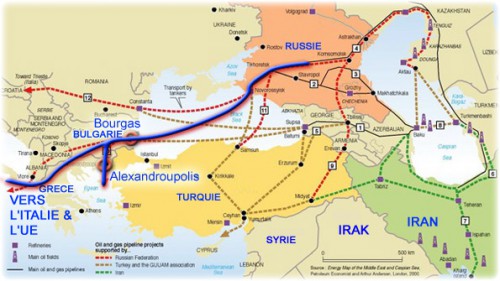
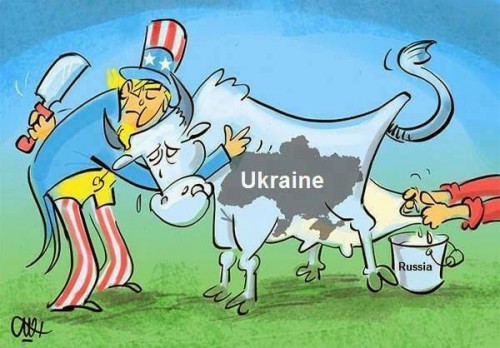

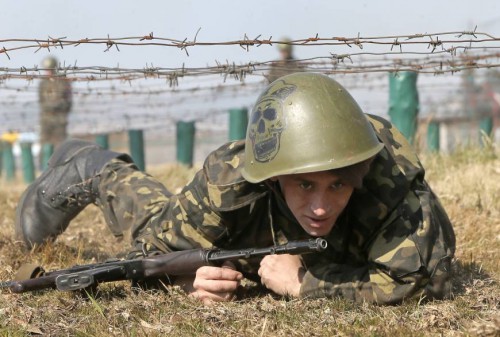
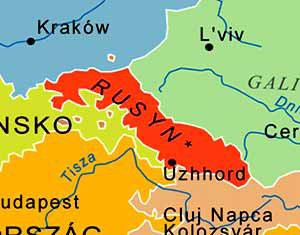 For a long time the fate of ethnic Hungarians in neighboring countries has long been a delicate issue for Hungary. The Victor Orban's government has allowed many of them to obtain Hungarian citizenship and vote in Hungarian elections. «Hungarians of the Carpathian Basin are entitled to dual citizenship, community rights and autonomy», the Hungarian Prime Minister said on May 10, «This is the stance we will represent in international politics.» According to him, the issue of ethnic Hungarians was especially topical due to the situation in neighboring Ukraine, where around 200,000 ethnic Hungarians live, who are entitled to Hungarian citizenship and also the right to self-administration. «This is our clear expectation from the new Ukraine which is taking shape now», Orban said... It’s not just a personal opinion of someone who heads a neighboring state. The concern over the fate of Carpathian Hungarians is widely spread in Hungary. These sentiments are fuelled by pictures of civilians being shot at by Ukraine’s interim government troops in Donbass.
For a long time the fate of ethnic Hungarians in neighboring countries has long been a delicate issue for Hungary. The Victor Orban's government has allowed many of them to obtain Hungarian citizenship and vote in Hungarian elections. «Hungarians of the Carpathian Basin are entitled to dual citizenship, community rights and autonomy», the Hungarian Prime Minister said on May 10, «This is the stance we will represent in international politics.» According to him, the issue of ethnic Hungarians was especially topical due to the situation in neighboring Ukraine, where around 200,000 ethnic Hungarians live, who are entitled to Hungarian citizenship and also the right to self-administration. «This is our clear expectation from the new Ukraine which is taking shape now», Orban said... It’s not just a personal opinion of someone who heads a neighboring state. The concern over the fate of Carpathian Hungarians is widely spread in Hungary. These sentiments are fuelled by pictures of civilians being shot at by Ukraine’s interim government troops in Donbass. 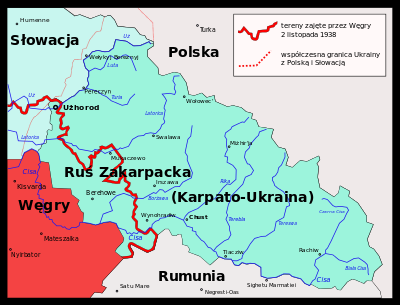
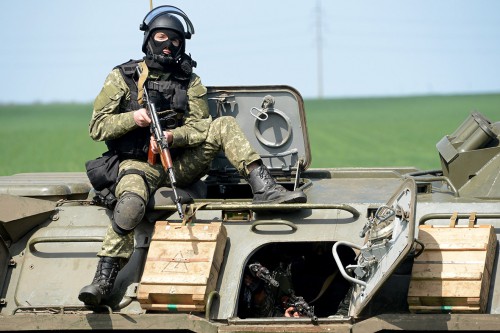



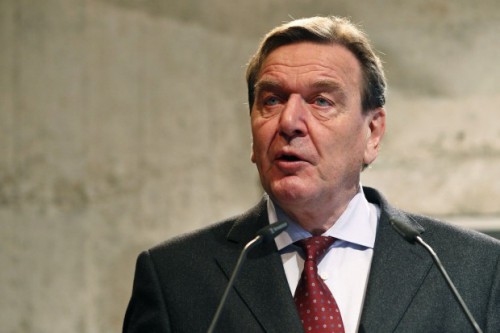
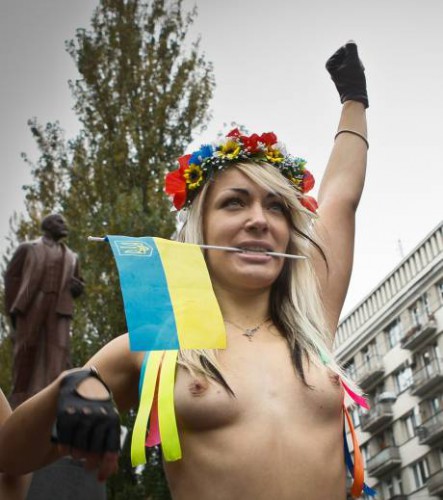 Que nous arrive-t-il ? Tout d'un coup, nous comprenons. Non pas que nous n'avions pas compris mais il subsistait toujours un peu le doute, une interrogation. Qu'aurions-nous fait ? Dans quel camp aurions-nous été ? Que nous réserverait un jour l'histoire ? Nous avions tant lu sur la génération des années 30 de Maulnier à Aragon, de Cocteau à Malraux, de Drieu à Maurras, de Rebatet à Breton, de Bernanos à Sartre que nous sentions bien que leurs positionnements suivaient les aléas de l'Histoire, des familles, des générations politiques, de la clairvoyance intellectuelle, des idées prolétariennes ou bourgeoises voire même de l'avenir de la poésie. Cela nous fascinait.
Que nous arrive-t-il ? Tout d'un coup, nous comprenons. Non pas que nous n'avions pas compris mais il subsistait toujours un peu le doute, une interrogation. Qu'aurions-nous fait ? Dans quel camp aurions-nous été ? Que nous réserverait un jour l'histoire ? Nous avions tant lu sur la génération des années 30 de Maulnier à Aragon, de Cocteau à Malraux, de Drieu à Maurras, de Rebatet à Breton, de Bernanos à Sartre que nous sentions bien que leurs positionnements suivaient les aléas de l'Histoire, des familles, des générations politiques, de la clairvoyance intellectuelle, des idées prolétariennes ou bourgeoises voire même de l'avenir de la poésie. Cela nous fascinait.